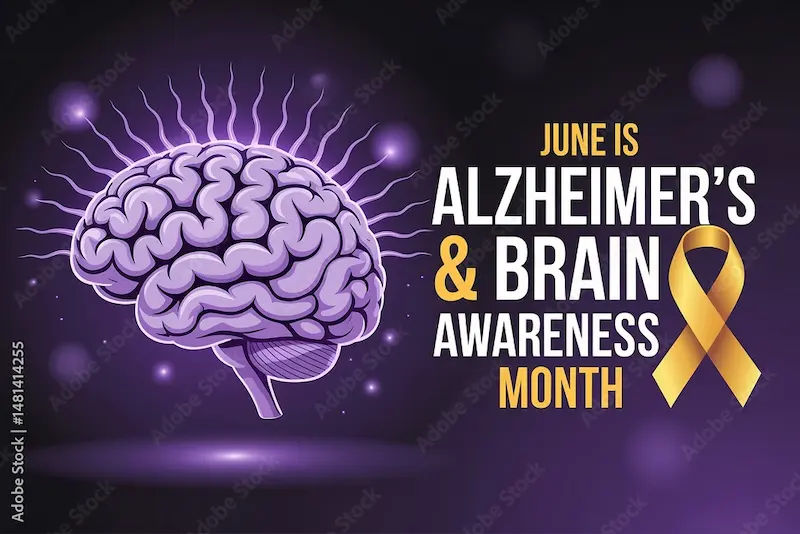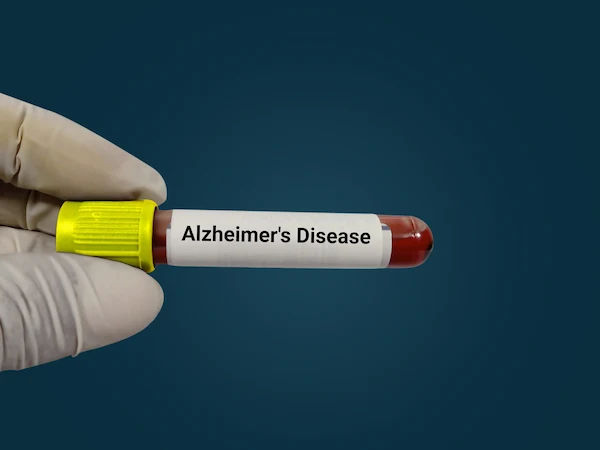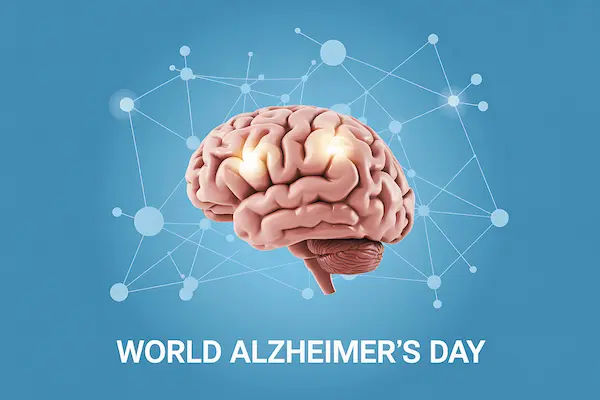Alzheimer: Disease Overview and Management Options
Get a comprehensive overview of Alzheimer’s disease, including its symptoms, causes, stages, and effective management options to support patients and caregivers throughout the condition’s progression.


Alzheimer’s disease is a progressive brain disorder that affects memory, thinking, and behaviour. It is the most common cause of dementia, a term used to describe a decline in cognitive function severe enough to interfere with daily life. While Alzheimer’s primarily affects older adults, it is not a normal part of ageing. Understanding the condition, its symptoms, causes, and management options can help patients and their families cope better.
What is Alzheimer’s Disease?
Alzheimer’s disease damages brain cells, leading to memory loss, confusion, and difficulty in performing everyday tasks. Over time, the condition worsens, making it hard for individuals to recognise loved ones or communicate effectively. The exact cause is still not fully understood, but scientists believe a combination of genetic, lifestyle, and environmental factors plays a role.
Symptoms of Alzheimer’s Disease
The symptoms of Alzheimer’s develop gradually and worsen over time. They can be categorised into early, middle, and late stages:
Early Stage (Mild Alzheimer’s)
- Difficulty remembering recent events or conversations
- Trouble finding the right words
- Misplacing items frequently
- Struggling with planning or organising tasks
Middle Stage (Moderate Alzheimer’s)
- Increased memory loss, including forgetting personal history
- Confusion about time and place
- Difficulty recognising family and friends
- Changes in mood and behaviour (e.g., agitation, suspicion)
- Trouble with basic tasks like dressing or bathing
Late Stage (Severe Alzheimer’s)
- Loss of ability to communicate
- Needing full-time assistance with daily activities
- Physical decline (difficulty walking, sitting, or swallowing)
- Increased vulnerability to infections
What Causes Alzheimer’s Disease?
While the exact cause remains unclear, several factors contribute to its development:
- Plaques and Tangles: Abnormal protein deposits (amyloid plaques and tau tangles) build up in the brain, disrupting nerve cell function.
- Genetics: A family history of Alzheimer’s increases risk, particularly if a close relative had the disease.
- Age: The risk rises significantly after age 65.
- Lifestyle Factors: Poor diet, lack of exercise, smoking, and uncontrolled chronic conditions (like diabetes or high blood pressure) may increase risk.
How is Alzheimer’s Diagnosed?
There is no single test for Alzheimer’s. Doctors use a combination of methods:
- Medical history and cognitive tests to assess memory and thinking skills.
- Brain imaging (MRI or CT scans) to check for brain changes.
- Blood tests to rule out other conditions.
If you or a loved one experience memory problems, consult a doctor early. Early diagnosis helps in managing symptoms better.
Consult Top Specialists
Management and Treatment Options
While there is no cure for Alzheimer’s, treatments can help slow its progression and improve quality of life.
Medications
- Cholinesterase inhibitors (Donepezil, Rivastigmine) help with memory and thinking.
- Memantine regulates brain chemicals to delay symptom worsening.
- Newer therapies (like monoclonal antibodies) target amyloid plaques.
Lifestyle Changes to Support Brain Health
- Healthy Diet: A Mediterranean diet (rich in fruits, vegetables, whole grains, and fish) may help.
- Regular Exercise: Physical activity improves blood flow to the brain.
- Mental Stimulation: Puzzles, reading, and learning new skills keep the brain active.
- Social Engagement: Staying connected with friends and family reduces isolation.
- Quality Sleep: Poor sleep may worsen memory problems.
Support for Caregivers
Caring for someone with Alzheimer’s can be challenging. Here are some tips:
- Educate yourself about the disease.
- Create a safe home environment (remove hazards, use reminders).
- Seek support groups or professional help when needed.
When to See a Doctor?
If you or a loved one experience:
- Frequent memory lapses affecting daily life
- Confusion about time or place
- Difficulty completing familiar tasks
- Personality or mood changes
It’s important to consult a neurologist or geriatric specialist. Early intervention can make a difference.
How Apollo 24|7 Can Help
If you suspect Alzheimer’s symptoms, Apollo 24|7 offers:
- Expert consultations with neurologists
- Cognitive assessments to evaluate memory concerns
- Personalised care plans for managing symptoms
You can book a consultation or schedule a test easily through the Apollo 24|7 app or website.
Conclusion
Alzheimer’s disease is a challenging condition, but with the right care and support, patients can maintain a good quality of life. Early diagnosis, medication, and healthy lifestyle choices play a crucial role in managing symptoms. If you have concerns about memory loss, don’t hesitate to seek medical advice.
Remember, you are not alone—support is available for both patients and caregivers. Stay informed, stay proactive, and take steps to protect brain health.
Would you like to speak to a specialist? Book a consultation today with Apollo 24|7 and get the guidance you need.
Consult Top Specialists
Consult Top Specialists

Dr Debnath Dwaipayan
Neurosurgeon
9 Years • MBBS, MS(Gen. Surgery), DrNB (Neurosurgery)
Delhi
Apollo Hospitals Indraprastha, Delhi

Dr. Avinash Gupta
Neurologist
12 Years • MBBS, DNB - Neurology
Bilaspur
Apollo Hospitals Seepat Road, Bilaspur
(150+ Patients)

Dr. Boby Varkey Maramattom
Neurologist
22 Years • MD, DM (neurology), EDSI, FRCP, FICCN
Angamaly
Apollo Hospitals Karukutty, Angamaly
(25+ Patients)

Dr. Sandeep Gurram
Neurologist
12 Years • MBBS, MD(Internal Medicine), DM(Neurology), PDF(Movement disorders) - NIMHANS
Secunderabad
Apollo Hospitals Secunderabad, Secunderabad

Dr. Gangula Charvitha Reddy
Neurologist
6 Years • MBBS, MD DM NEUROLOGY, SCE NEUROLOGY ( RCP-UK).
Hyderabad
Apollo Hospitals D R D O kanchanbagh, Hyderabad
Consult Top Specialists

Dr Debnath Dwaipayan
Neurosurgeon
9 Years • MBBS, MS(Gen. Surgery), DrNB (Neurosurgery)
Delhi
Apollo Hospitals Indraprastha, Delhi

Dr. Avinash Gupta
Neurologist
12 Years • MBBS, DNB - Neurology
Bilaspur
Apollo Hospitals Seepat Road, Bilaspur
(150+ Patients)

Dr. Boby Varkey Maramattom
Neurologist
22 Years • MD, DM (neurology), EDSI, FRCP, FICCN
Angamaly
Apollo Hospitals Karukutty, Angamaly
(25+ Patients)

Dr. Sandeep Gurram
Neurologist
12 Years • MBBS, MD(Internal Medicine), DM(Neurology), PDF(Movement disorders) - NIMHANS
Secunderabad
Apollo Hospitals Secunderabad, Secunderabad

Dr. Gangula Charvitha Reddy
Neurologist
6 Years • MBBS, MD DM NEUROLOGY, SCE NEUROLOGY ( RCP-UK).
Hyderabad
Apollo Hospitals D R D O kanchanbagh, Hyderabad




